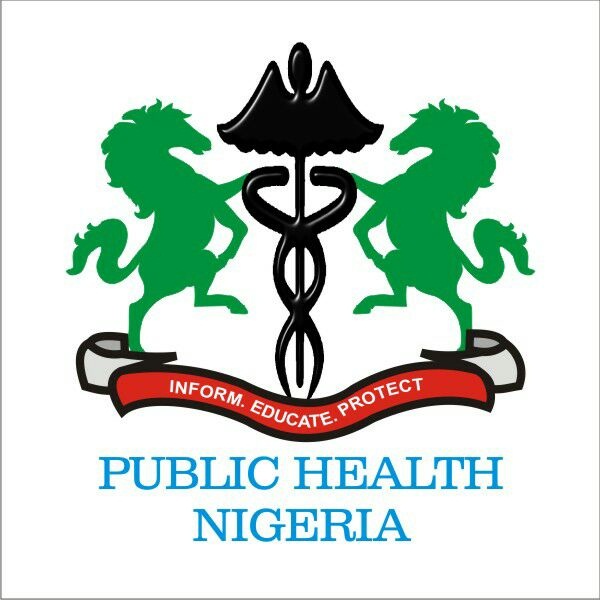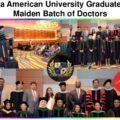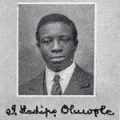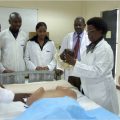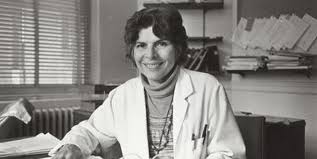
Dr. Helen Rodríguez Trías was a pediatrician, educator and women’s rights activist. She was the first Latina president of the American Public Health Association, a founding member of the Women’s Caucus of the APHA, and a recipient of the Presidential Citizens Medal.
In 1948, she began her academic education at the University of Puerto Rico in San Juan. The university had a very strong independence movement and Rodríguez Trías became involved with the student faction of the Puerto Rican Nationalist Party. Nationalist leader Don Pedro Albizu Campos was invited to speak by the student council; however, the chancellor of the university, Jaime Rexach Benítez, did not permit Albizu access to the campus. The students consequently went on strike, with Rodríguez Trías amongst them, but her brother did not approve of this. He threatened to cut off her college expenses and she returned to New York. READ Dental Instruments Pictures, Names and Uses
In New York, she married and had three children before she decided to return to Puerto Rico to pursue her degree. She earned her medical degree in 1960, at the age of 31, and soon after gave birth to her fourth child. During her residency at the University Hospital in San Juan, she established the first center for the care of newborn babies in Puerto Rico. The hospital’s death rate for newborns decreased 50 percent within three years. She established her medical practice in the field of pediatrics in the island after completing her residency.
Medical and Public Health career
Rodríguez Trías headed the department of pediatrics at Lincoln Hospital in the South Bronx. At Lincoln Hospital, Rodríguez Trías lobbied to give all workers a voice in administrative and patient-care issues. She became involved with the Puerto Rican community and encouraged the health care workers at the hospital to become aware of the cultural issues and needs of the community. Rodríguez Trías was also an associate professor of medicine at Albert Einstein College of Medicine, Yeshiva University, and later taught at Columbia and Fordham universities.READ: Primary Health Care Definition Goal Principles And Strategies
Presidential Citizens Medal
During her years in Puerto Rico, Rodríguez Trías became aware that unsuspecting Puerto Rican women were being sterilized and that the United States was using Puerto Rico as a laboratory for the development of birth control technology. In 1970, she was a founding member of Committee to End Sterilization Abuse and in 1971 a founding member of the Women’s Caucus of the American Public Health Association. She supported abortion rights, fought for the abolishment of enforced sterilization, and sought neonatal care for underserved people. In 1979, she became a founding member of the Committee for Abortion Rights and Against Sterilization Abuse and testified before the Department of Health, Education, and Welfare for passage of federal sterilization guidelines. The guidelines, which she drafted, required a woman’s written consent to sterilization in a language they could understand, and set a waiting period between the consent and the sterilization procedure. She is credited with helping to expand the range of public health services for women and children in minority and low-income populations in the United States, Central and South America, Africa, Asia, and the Middle East. Read :Types of Sponge Forceps and Their Uses Pictured
In the 1980s, Rodríguez Trías served as medical director of the New York State Department of Health AIDS Institute. She worked on behalf of women from minority groups who were infected with HIV. In the 1990s, she served as health co-director of the Pacific Institute for Women’s Health, a nonprofit research and advocacy group dedicated to improving women’s well-being worldwide and focused on reproduction. She was a founding member of both the Women’s Caucus and the Hispanic Caucus of the American Public Health Association (APHA) and the first Latina to serve as the president of the APHA.
The Helen Rodriguez-Trias Social Justice Award
The Helen Rodriguez-Trias Social Justice Award of the American Public Health Association (APHA) is awarded to a person who has worked toward social justice for underserved and disadvantaged populations. This individual’s work should focus on improving the health and well being of these populations and should include the activities of leading, advocating and mentoring (any or all three of these activities). This award is named after the late Dr. Helen Rodriguez-Trias, past president of APHA and a pediatrician. Dr. Rodriguez-Trias was an inspiration and role model who strove to meet the needs of underserved and disadvantaged populations, especially women and children. Through her work and activism, she used social justice strategies that affect change for the better. READ : The 8 Types Of Personal Hygiene
Who was her mentor?
Dr. Rodriguez-Trias has said, she was inspired by “the experience of [my] own mother, my aunts and sisters, who faced so many restraints in their struggle to flower and realize their full potential.
Quite a few people in medical school inspired my work, particularly Dr. Jose Sifontes, one of my professors. He was one of the pioneers in pediatric tuberculosis…He had a very humble way about him. He was definitely an inspiration because he had a sense that what was happening in the community was something that affected health. He said that tuberculosis was a disease of poverty, of malnutrition, of overcrowding.
Many other people have been great inspirations for me. If you talk about global leadership, I think of Bill Foege. When we were both on the board of APHA, I got to know something about his thinking and how he presented things, his forcefulness. READ Components of primary health care
Google Doodle Tribute on Her 89th Birthday
On July 7, 2018, what would have being her 89th Birthday Google Doodle honored her with a tribute. The Google doodle team described her as a physician, educator, and outspoken advocate for women and children’s right to healthcare. Here is how they describer her:
She was inspired to pursue a career in medicine because, she said, it “combined the things I loved the most, science and people.”
Upon moving her practice from Puerto Rico to NYC, she became a staunch supporter of grassroots efforts to improve the quality of life for the community served by Lincoln Hospital in the South Bronx, where she worked as director of the Department of Pediatrics. She developed programs to help abused children and families affected by HIV and AIDS.
Over time Dr. Rodríguez Trias expanded her efforts on an international scale, working tirelessly to improve health care for families in Central and South America, Africa, Asia, and the Middle East. “I hope I’ll see in my lifetime a growing realization that we are one world,” she said. “No one is going to have quality of life unless we support everyone’s quality of life… Not on a basis of do-goodism, but because of a real commitment…it’s our collective and personal health that’s at stake.”
A founder of the New York Latino Commission on AIDS, she became the first Hispanic American woman to serve as president of the American Public Health Association. In 2001, she was honored her with the Presidential Citizens Medal as an ”outstanding educator and dynamic leader in public health.”READ Best Schools for Masters In Public Health (MPH) in Canada
